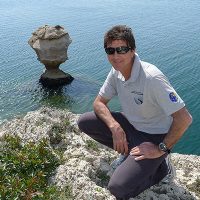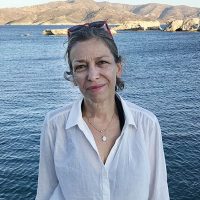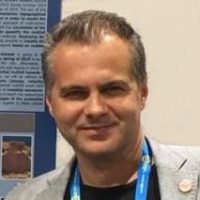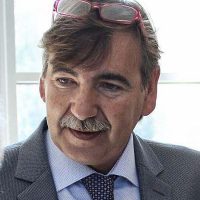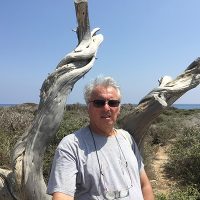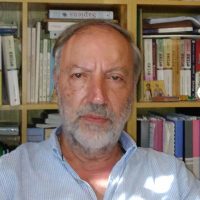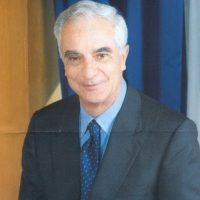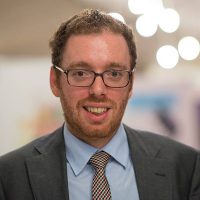Our team
Our team
Partners
Marco Anzidei was born in Rome (Italy) in 1959. Degree in Geology, Phd in Physics of the Complex Systems, Senior Scientist of INGV (Istituto Nazionale di Geofisica e Vulcanologia) and member of the board of directors of the SpacEarth Technology (a spin-off of INGV). He has published about 160 peer reviewed articles mainly on geodesy applied to the study of crustal deformation, integration of topographic data by aerial survey techniques, laser scanning, single and multi-beam bathymetry and on the sea level changes (instrumental, geological, archaeological). He has been head of the Functional Unit “Geodesy and GPS Networks” of the INGV and Counselor of AIQUA (Italian Association for Quaternary Research); contract professor of Geodetic and Mapping Techniques and member of the Doctorate Council PhCMaST, University of Calabria, Cosenza, Italy; Visiting scientist and contract professor of Geomatics, University of Tunis El Manar, Tunisia; Invited professor at the Ecole Normale Supérieure, Paris, France. He has worked in 19 scientific projects and recently he coordinated the SAVEMEDCOASTS project funded by the European Commission DG-ECHO. He received two awards in Science Communication (2012: Pelagos Communication, 2011: Docscient Festival).
Eleni Kolaiti has a Mining Engineering degree from the School of Mines of NTUA (1988) and a PhD in Geoarchaeology from the Department of History, Archaeology and Cultural Resources Management, University of the Peloponnese (2019). She has extensive experience in geotechnical, geological and geoarchaeological surveys. Research Collaborator at the Institute of Historical Research, National Hellenic Research Foundation. Honorary Research Fellow in the Department of Classics and Archaeology, University of Nottingham (UK). The theme of her PhD was the geoarchaeological method of approach the Late Holocene relative sea level changes based on archaeological and geomorphological indicators. Her research interests focus on geoarchaeology, the relative sea level changes and their impact on the coastal landscape during the Late Holocene, including the archaeological sites and ancient remains. She has published many research articles on engineering geology and geoarchaeology in peer-reviewed journals and conference proceedings. She participates and coordinates geoarchaeological research projects in collaboration with various institutes.
Vice President for the International Association of Engineering Geology and the Environment (IAEG)
Vassilis Marinos was born in Athens in 1976. He has a Bachelor degree in Geology from the University of Athens, MSc with Distinction from Imperial College, London and PhD from the National Technical University of Athens (NTUA), School of Civil Engineering, Geotechnical Division. He is currently an Assistant Professor of Engineering Geology in the NTUA, School of Civil Engineering and previously he was an Associated Professor in the Aristotle University of Thessaloniki, Department of Geology. He has written more than 100 research articles in scientific journals, book chapters and international conferences, while research results are included in the design specifications of large projects, in geotechnical software suits and have been integrated in the geotechnical design of large engineering works internationally. He was awarded from the International Association of Engineering Geology (IAEG) with a runner-up certificate of the Richard Wolters Prize. Scholar from Golder Associates to perform joint research and deliver lectures in Queens University (Canada, 2014), and invited speaker in several universities and scientific associations in many countries. Member of numerous professional and scientific bodies and of the editorial board of international scientific journals. He has organized international and national conferences, he has participated in many research projects coordinating a significant number of geoscientists and he is providing consulting services for infrastructure projects, design of engineering structures in rock and use of 3D point clouds for rock mass structural analysis towards rockfall-landslide hazard and stability analysis and monitoring.
Ioannis Moschos is an archaeologist (University of Ioannina, 1990) and a PhD candidate in Aegean Prehistory. He joined the Department of Antiquities of Achaea as curator of the Archeological Museum of Patras, being responsible for the exhibition of its collection. He has directed and participated in international archaeological excavations of coastal and mountainous settlements in Greece. His research interest is mainly related to the relationships and contacts among the peoples of the Central and Eastern Mediterranean through maritime and land routes.
Nikos Mourtzas studied Geological Sciences (1984) and he earned a PhD in Quaternary Neotectonics from the National Technical University of Athens (NTUA, 1990). He has been working as a Consultant Engineering Geologist of Civil Engineering works for 35 years. Contract professor of Engineering Geology, Civil Engineering Dept., University of Thessaly. Member of the Central Archaeological Council (ΚΑS) of the Ministry of Culture. Honorary Research Fellow in the Department of Classics and Archaeology of the University of Nottingham (UK). Member of the Committee for Climate Change and Cultural Heritage of the Ministry of Culture, which is assigned the task of formulating the guidelines of the National Action Plan for the protection of cultural heritage from the impact of climate change. He was Chairman of the Scientific Committee of the New Archaeological Museum of Patras and member of Committees for the Protection of Archaeological Sites. In the context of numerous archaeological and geoarchaeological surveys, he focused on the relative sea level changes during the Quaternary and the palaeogeographic reconstruction of coastal archaeological sites. He has published many research articles on tectonics, coastal geomorphology and geoarchaeology.
Paraskevas Panagiotopoulos studied Physics at the National and Kapodistrian University of Athens and the University of Patras (1976). He has taught Physics in secondary and higher education for years. Among the first to have taught computer science in schools. His research interest focuses on forced oscillations and especially on sea water.
Panagiotis Patargias is a Civil Engineer NTUA, PhD. He has significant experience in the study and construction of buildings, as a freelance Civil Engineer in combination with his duty positions in the Greek Organization of Telecommunications. He serviced in governmental positions such as, Chief Executive Officer of the School Buildings Organization (2004-2009), President of the Board of the ERGOSE (Greek Railway Organization-Subsidiary Constructive Company, 2009-2010), President and Chief Executive Officer of the Public Properties Company of the State (1993). He has written 125 scientific papers and 5 university books. His academic scientific field focuses on Environmental Protection and Sustainable Development, emphasizing on energy issues in sea and coastal areas.
Vasileios Stathopoulos is a senior manager of European projects, with extensive experience in European organisations based in Strasbourg, Brussels and the Hague. He is a lawyer and a political scientist, holder of bachelor degrees from the Law School of Athens (2007) and the Department of International and European Studies of Panteion University (2015), and specialised at master’s level in European Law (Strasbourg) and International Security (Toulouse). He speaks English, French, Spanish and Dutch.
Past Partners
Emeritus Professor of Engineering Geology, NTUA
Past President International Association of Engineering Geology and the Environment and the Geological Society of Greece
Mining Engineering degree from the School of Mines of NTUA (1966), graduate studies in Applied Geology and PhD from the University of Grenoble, France (1969). Visiting Professor University of Grenoble (1987) and Paris School of Mines (2003). Awards: Jahns Distinguished Lectrer of AEG/GSA (USA), Hans Cloos medal (IAEG) Andre Dumont medal (Belgium), Glossop medal of the GSL Great Britain), presentation of named lectures around the world. Dr Honoris Causa of the University of Thrace. Knighted by the French Republic (Palmes Académiques). Research on a variety of applications of geology to engineering. Author of over 350 papers in journals or major conference proceedings. Editor in chief of the scientific journal “Geotechnical and Geological Engineering”. Consultant or expert on major civil engineering structures works all around the world.
Ηe was a founding member and partner of AKTES until October 2021
Members
Dr. Carmelo Di Nicuolo
Dr. Carmelo Di Nicuolo was born in Napoli (Italy) in 1979. Degree in Archaeology and Ancient History at the University of Napoli ‘Federico II’. Postgraduate in Classical Archaeology at the Italian Archaeological School at Athens, where present day he is responsible for Educational Programs on account of the Italian Ministry of Cultural Heritage, Acrivities and Tourism. PhD in Classical Archaeology at the University of Rome Tor Vergata and now Postdoctoral Researcher at the National and Capodistrian University of Athens with a project focusing on the ancient polis of Kimolos. Contract Professor of Archaeomineralogy at the University of Rome Tor Vergata.
Dr. Konstantinos Roussos
Konstantinos Roussos is a doctor of Late Antique and Byzantine Archaeology. He has been participated in a number of field and research projects in Greece, Turkey and Cyprus. For many years he involves as a full time partner at pioneering research programs conducted by the Institute for Mediterranean Studies – Foundation for Research & Technology Hellas (Crete). In the winter semester of 2019-2020, he worked as a visiting Lecturer in Byzantine Archaeology at the Department of History and Archaeology of the University of Crete. From 2020 his post-doctoral research project entitled “Cretan ports and harbors from Late Antiquity to the Byzantine Early Middle Ages (4th – early 9th c. AD)” is co-financed by Greece and the European Union (European Social Fund-ESF) through the Operational Programme «Human Resources Development, Education and Lifelong Learning» in the context of the project “Reinforcement of Postdoctoral Researchers – 2nd Cycle”, implemented by the State Scholarships Foundation (ΙΚΥ – Greece).
Michael Curtis
Doctoral Researcher, School of Archaeology & Ancient History, University of Leicester – Trustee and Executive Board member of the Nautical Archaeology Society
Michael Curtis is a Doctoral Researcher at the School of Archaeology & Ancient History at the University of Leicester, studying the Imperial Ports and Harbours of Crete and the development of the Provincial coastal infrastructure. He is a professional landscape and coastal archaeologist, having been active in British archaeology for over 50 years and in Greek archaeology since the mid-1990s, and is an Adult Learning tutor in Archaeology & Ancient History for Northamptonshire Adult Learning Services. He has been the founder of the Colloquiums on Post-Minoan Crete and Roman Crete and has published one volume of co-edited papers from these and a second volume is expected to be published at the beginning of 2022. Michael recently launched a new Study Group on Ancient Ports and Harbours of the Greek World, a collaborative initiative aimed at facilitating dialogue on the evolution and development of Greek ports and harbours from the Bronze Age to the Venetian period. He is also a leading member of an international project studying the Greek and Roman harbours at Ierapetra, in Eastern Crete. Michael is a Trustee and Executive Board member of the Nautical Archaeology Society.
Dr Evyenia Yiannouli, Assoc. Professor of Prehistoric Archaeology,
Director of Maritime Archaeology Laboratory
Α student of the NKUA, Dept of English (1981) and the University of Ioannina, Dept of Archaeology and Art History (1983). A Cambridge University graduate, Dept of Archaeology and Anthropology, in 1985 (Analogy in archaeology: Examples from the Greek Neolithic. M.Phlil. Thesis) and in 1992 (Reason in architecture: The component of space. A study of domestic and palatial buildings of Bronze Age Greece. Ph.D. Dissertation), supported by the Greek State Scholarship Foundation. A lecturer in the University of Thessaly (2001-2005) and member of staff in the University of the Peloponnese, since 2007.
Main research interests: Bronze Age Architecture, incipient settlement in Aegean Prehistory, religion and symbolic/liguistic expression, epistemology/philosophy in archaeology, the geoarchaeology of shores.
Supporters
- Aleka and Panos Mazarakis (KYNISKA PALACE, Conference & Spa)
- Stephen John Taylor at TESPatras
- Prodromos Petridis (ALTAXIS CONSULTING S.A.)
- Lena and Thanassis Soltas
- Milos Diving Center
Scientific Committee
–



